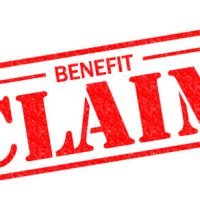Signs a Disability Insurance Company Is Unjustly Denying a Claim

Disability insurance offers a great benefit, but is often tricky to access. When someone is suffering from a disability that prevents him/her from working, the common course of action is to file a claim with his/her insurance company under a long-term disability policy, if available. The standard for establishing a disability under a private or employer-sponsored policy is typically easier to initially meet than the requirements for disability under the Social Security Disability Insurance (SSDI) program, and monthly payout is higher, usually covering 50 to 60 percent of one’s income. However, even in cases where a claim for disability seems particularly strong, it is hard to cast out lingering and nagging doubts about the possibility of being denied coverage. For many recipients, long-term disability is a temporary solution, as some policies limit coverage to between two to ten years, though some will offer benefits until an individual reaches retirement. Because of the potential to pay a considerable amount of money over an extended period of time, some insurance companies will unreasonably deny a claim in hopes the disabled individual will accept a quick settlement or buyout agreement in an amount far less than the full value of the benefits. This is called a bad faith denial, and this conduct is not permitted under the law. A look at actions/behavior that suggests a disability claim was denied in bad faith, and ways of legally responding in this situation, will be explored below.
Signs a Denial Was Made in Bad Faith
Bad faith denials are often an issue in cases where the length of time a disability may last is unknown, which leaves an insurance company with the potential obligation to pay benefits for an uncertain number of years. However, this is the bargain the insurance company offered to policyholders, and it should not be able to avoid this obligation because the company no longer likes the terms. Examples of behavior commonly seen in bad faith denial of a claim include:
- unreasonable delay in processing a claim;
- denial of benefits without any support from the facts or law;
- misrepresentation of policy benefits;
- unnecessary or excessive requests for information;
- failure to promptly and fairly settle a claim when liability is clear; and
- advising a claimant not to consult an attorney.
How to Respond When a Bad Faith Denial Is Suspected
The appropriate response to instances of a bad faith claim denial will largely depend on whether State or federal law is applicable to the situation. ERISA covers most insurance plans offered through employers, including employer-sponsored disability coverage. If this is the case, all levels of appeal and administrative review must first be exhausted before a lawsuit can be filed to compel the insurance company to pay the claim. If the disability coverage was privately obtained by an individual, State law would control, and one’s ability to file a lawsuit would come much sooner. Unfair claim settlement practices and false representation of policy coverage are two of the more common bases for challenging a denial of coverage under Florida law. Determining if State or federal law applies to a case is a key assessment that represents just one of the many technical aspects of these cases. An experienced disability insurance attorney should be consulted as soon as practicable, as strict time limits govern when action must be taken, and failure to do so could result in the loss of the right to appeal a denial or sue.
Talk to a Disability Insurance Attorney
Getting the money you need to provide for yourself and your family is a big priority once it becomes apparent working is no longer possible. Working with a disability insurance attorney before the initial claim is even filed will give you the best chance for success, and likely shorten the time it takes to receive benefits if the claim is at first denied. Farrell Disability Law handles all aspects of the disability claim process, and is available to assess your case. If you live in the Jacksonville area, contact the office today for a free consultation.
Resource:
dol.gov/agencies/ebsa/about-ebsa/our-activities/resource-center/publications/filing-a-claim-for-your-health-or-disability-benefits









